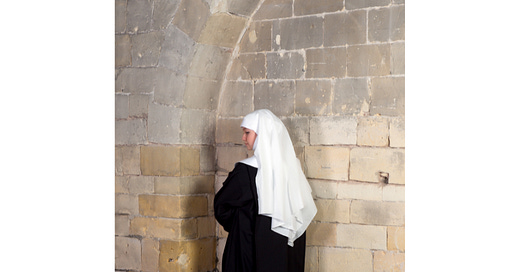Editor’s Note: This interview was conducted in 2006. Ms. Burris now lives in Louisiana, where she teaches 8th grade English, and is married with two teen sons.
Q. Why do you call yourself a pilgrim?
A.…
Keep reading with a 7-day free trial
Subscribe to My Secret is Mine to keep reading this post and get 7 days of free access to the full post archives.




